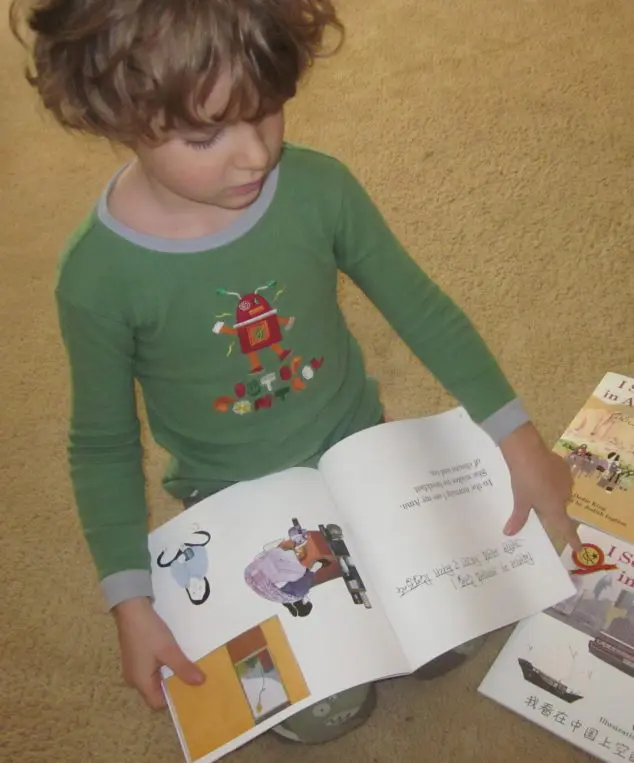Reading is a tremendously appealing, satisfying activity. Children will become hooked once the adults in their lives consistently build it into their daily schedules. The key for how to make children love reading, is getting children started in a consistent way and providing meaningful positive feedback. The following seven strategies will help even the most reluctant reader become more enthusiastic about the endeavor.
By employing the reading tips described below, reading will become something that students do willingly, even eagerly. The adults in the child’s life will not have to resort to trickery, bribery, manipulation, or any other tactic that will, at best, lead to temporary compliance. These reading tips will help to make reading a joyous lifelong habit.
Make Your Children Love Reading With These Helpful Suggestions

Encouraging a love for reading in children can be a wonderful and rewarding experience. Here are several tips to help foster a love for reading:
1. Start Early
Begin reading to your children from a young age, even when they’re infants. This helps create a positive association with books and reading. Here are a few tips from The Tessy & Tab Reading Club on how to foster a love of reading in preschoolers:
- Play letter games with your child to help them get interested in letters.
- Sit down with a good book at least daily and don’t rush it.
- Start a dialogue with your child. Ask questions and encourage your child to be detailed in describing what he or she sees. Talk to your child- the more you explain the greater their knowledge of how things work.
- Point at each word as you read.
- Follow up the story with fun activities around what you read.
- Don’t rush your child or pressure your child. Learning happens best when it is fun. Provide positive feedback for your child’s efforts.
2. Create a Reading Routine
Set aside a specific time for reading each day. Whether it’s before bedtime or during the day, consistency helps make reading a regular part of their routine.
3. Select books for reading that involve the child’s passions.
Children will be more excited about reading when they can choose books or magazines related to their interests. This suggestion is far and away the most powerful one when it comes to encouraging those who are reluctant to read. When kids own the choice of what they will read, motivation increases significantly.
4. Make reading a social experience.
Children who don’t enjoy reading alone often enjoy reading with somebody else. Children can read with their parents, siblings, other relatives, and friends. Some children even start book clubs and discuss books related to their common interests. Asking children to read to their younger siblings and cousins can powerfully impact their own motivation to read.

5. Read aloud to children.
Many parents regularly read aloud to their children when they are very young, yet stop this activity as the kids get older. Parents should read aloud to children throughout the elementary grades. Doing so makes reading more enjoyable, improves listening skills, builds comprehension, lengthens attention spans, and grows the imagination. Make this a habit and do it every family day.
6. Take advantage of new technology for reading.
Children who may not find books interesting may enjoy reading the same texts on smart phones, computers, and electronic readers, such as the iPad or Kindle. Technology makes everything seem cooler and more engaging to children, and we should capitalize on this fact when it comes to reading technology. There are also programs for learning to read online.
7. Be a reading role model to children.
When children see their parents reading frequently, discussing what they have read, and carrying books around, they will value reading to a greater extent. The power of a good role model cannot be underestimated.
8. Camouflage reading.
Parents can increase the amount of time their children spend reading by subtly building the activity into other, seemingly unrelated activities. Examples include reading menus at restaurants, reading the directions to board games, and looking at various websites together. Children who may not yet enjoy reading for its own sake may enjoy it tremendously when it’s incorporated into other engaging pastimes.
9. Be sure children read books that are appropriately challenging.
Many times kids don’t want to read simply because the books they encounter are too difficult. This seemingly obvious point is frequently forgotten. None of us want to encounter frustration, and we will go to great lengths to avoid experiences that make us feel this way. Appropriately challenging books are those in which students can fluently read approximately 95% of the words. Encountering a small number of difficult words can help children grow in their reading skills, but encountering too many of these words can interfere with fluency and lead to discouragement.
10. Get your child hooked on a reading series.
Faith Goldstein, author of Gorillas’ Night Out, has suggested getting your child started on a book collection. It is a great way to keep them wanting to read more. Book series are great because they provide children with the opportunity to get to know and connect with the literary characters on a deeper level. Children become attached to the characters. Furthermore, when they finish reading a book, they will naturally want to read the next book in the series because they have established a connection with the characters. Some popular reading series currently out are Magic Tree House by Mary Pope Osborne, Captain Underpants by Dav Pilkey, Harry Potter by J.K. Rowling, My Weird School by Dan Gutman, and Diary of a Wimpy Kid by Jeff Kinney.
Conclusion For How To Get Kids To Enjoy Reading
Commit to trying one or more these ideas for how to make children love reading. They will become a more enthusiastic reader in time. We want to raise children to read well. It is so nice when they want to read by themselves. Not because they have to do it. Remember, the goal is to create a positive and enjoyable experience around reading. Encouraging a love for books can open up a world of imagination and knowledge for children.
If these reading tips aren’t working for your child, try some new reading strategies. Sometimes it is just a matter of trying a new way that opens the door. Don’t forget to bring them to the library! It is a great way for them to see how many people love to read. They will also love how many reading choices they have.
Related Posts:
Are Your Kids Getting Too Much Screen Time? Try A Blackout


Kristin says
These are such fantastic tips! My kiddos like to read but don’t looove it like their mother. I usually have to drag them away from something else and then they enjoy it. We try to read to wind down before bed and they love Horrible Harry and Katie Woo at the moment.
Thanks for the tips!